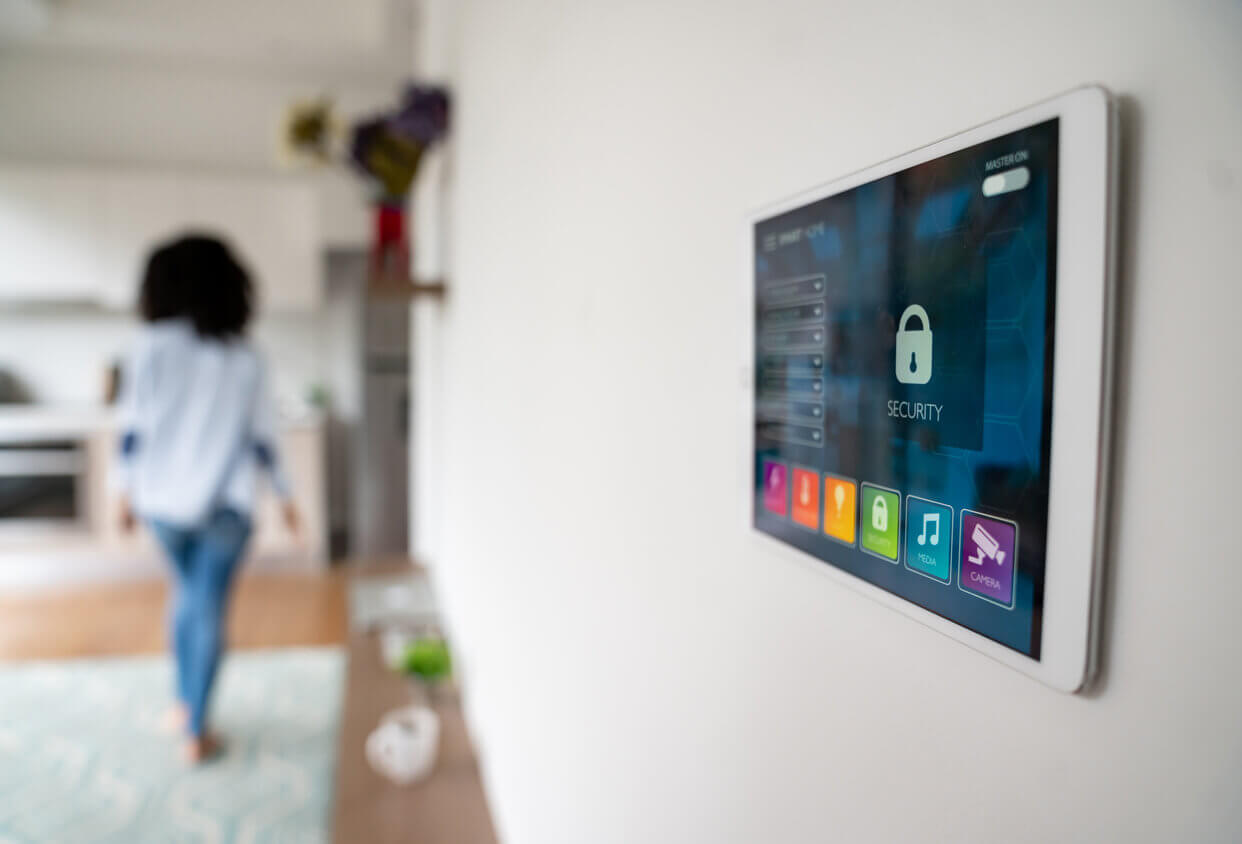Benefits of Indoor Plants for Mental Health and Air Quality

Discover the benefits of indoor plants for mental health and air quality. Learn how to choose and care for the best plants for your home.
Why Indoor Plants Are Essential for Your Home
Indoor plants are more than just decorative elements—they offer numerous benefits for both mental health and air quality. Studies have shown that having plants in your home can reduce stress, boost mood, and even improve concentration. Additionally, certain plants are natural air purifiers, removing toxins and improving indoor air quality.
Whether you're a seasoned plant parent or a beginner, incorporating indoor plants into your living space can transform your home into a healthier and more relaxing environment.
Top Indoor Plants for Mental Health
Not all plants are created equal when it comes to mental health benefits. Here are some of the best options:
- Snake Plant: Known for its air-purifying qualities, the snake plant is also low-maintenance, making it perfect for beginners.
- Lavender: This fragrant plant is renowned for its calming properties, helping to reduce anxiety and promote better sleep.
- Peace Lily: With its elegant white blooms, the peace lily not only beautifies your space but also helps reduce stress levels.
For more tips on creating a calming home environment, check out our article on Benefits of Natural Light.
Best Air-Purifying Indoor Plants
Improving air quality is another significant benefit of indoor plants. Here are some top choices:
- Spider Plant: This hardy plant is excellent at removing pollutants like formaldehyde and carbon monoxide from the air.
- Aloe Vera: In addition to its air-purifying abilities, aloe vera has healing properties for skin and can be grown easily indoors.
- Boston Fern: Known for its lush foliage, the Boston fern is highly effective at humidifying and purifying indoor air.
For more information on eco-friendly home solutions, visit the EPA's guide to indoor air quality.
How to Care for Your Indoor Plants
To reap the full benefits of indoor plants, proper care is essential. Follow these tips to keep your plants healthy:
- Watering: Overwatering is a common mistake. Ensure your plants have proper drainage and water them only when the soil is dry.
- Lighting: Different plants have different light requirements. Place them in areas where they can receive adequate sunlight or artificial light.
- Pruning: Regularly trim dead leaves and stems to encourage new growth and maintain the plant's health.
For more advice on sustainable living, check out the U.S. Department of Energy's Energy Saver guide.
Conclusion
Indoor plants are a simple yet powerful way to enhance your mental health and improve air quality in your home. By choosing the right plants and providing proper care, you can create a healthier, more relaxing living space. Start small with a few easy-to-care-for plants and gradually expand your indoor garden to enjoy the full range of benefits.
For more tips on creating a sustainable and healthy home, explore our related articles and trusted resources.
How to Choose the Best Insurance for Smart Home Security

Learn how to choose the best insurance for smart home security systems with 24/7 monitoring. Get tips on coverage, providers, and maximizing benefits.
Why Smart Home Security Systems Need Specialized Insurance
Smart home security systems with 24/7 monitoring are a game-changer for home safety. They offer real-time alerts, remote access, and advanced features like motion detection and video surveillance. However, these systems also come with unique risks, such as cyberattacks or device malfunctions. That's why it's crucial to have specialized insurance that covers these modern security solutions.
Standard home insurance policies may not fully protect your smart home devices or the data they collect. By choosing the best insurance for smart home security systems, you can ensure comprehensive coverage for both physical and digital risks.
What to Look for in a Smart Home Insurance Policy
When shopping for insurance, consider the following factors to find the best policy for your needs:
- Coverage for Smart Devices: Ensure the policy covers the repair or replacement of smart security cameras, sensors, and other devices.
- Cyber Liability Protection: Look for policies that include coverage for data breaches or hacking incidents involving your smart home system.
- 24/7 Monitoring Support: Verify that the insurance covers costs related to professional monitoring services, which are essential for immediate response to emergencies.
For more insights on protecting your home, read our article on Benefits of Smart Home Security.
Top Insurance Providers for Smart Homes
Several insurance companies specialize in covering smart home technology. Here are some of the best options:
- Lemonade: Known for its tech-friendly approach, Lemonade offers affordable policies that include coverage for smart home devices.
- Progressive: Progressive provides customizable policies with optional add-ons for smart home systems and 24/7 monitoring.
- American Family Insurance: This provider offers discounts for homes equipped with advanced security systems, making it a cost-effective choice.
For more tips on sustainable living, check out the EPA's guidelines on sustainability.
How to Save on Smart Home Insurance
Here are some practical tips to reduce your insurance costs while maintaining excellent coverage:
- Install Certified Devices: Use smart home devices that are certified by recognized security standards, as insurers often offer discounts for these.
- Bundle Policies: Combine your home and auto insurance with the same provider to unlock significant savings.
- Regularly Review Your Policy: Update your coverage as you add new devices or upgrade your security system to ensure you're not overpaying.
For more advice on eco-friendly home solutions, visit the U.S. Department of Energy's Energy Saver guide.
Conclusion
Choosing the best insurance for smart home security systems with 24/7 monitoring is essential for protecting your investment and ensuring peace of mind. By understanding your coverage needs, comparing providers, and taking advantage of discounts, you can find a policy that offers both affordability and comprehensive protection.
For more information on home security and sustainable living, explore our related articles and trusted resources.
Best Insurance for Smart Home Security Systems

Discover the best insurance for smart home security systems with 24/7 monitoring. Protect your home with comprehensive coverage and peace of mind.
Why You Need Insurance for Smart Home Security Systems
Smart home security systems with 24/7 monitoring are becoming increasingly popular as homeowners seek to protect their properties and loved ones. However, even the most advanced systems can't guarantee absolute safety. That's where insurance comes in. The right insurance policy can provide financial protection against theft, vandalism, and other unforeseen events.
When choosing the best insurance for smart home security systems, it's essential to consider factors like coverage limits, deductibles, and additional benefits. Some policies even offer discounts for homes equipped with advanced security features, making it a win-win situation for homeowners.
Top Insurance Providers for Smart Home Security Systems
Several insurance companies offer specialized policies tailored to homes with smart security systems. Here are some of the top providers:
- State Farm: Known for its comprehensive coverage options, State Farm offers discounts for homes with monitored security systems.
- Allstate: Allstate provides customizable policies that can include coverage for smart home devices and 24/7 monitoring services.
- Nationwide: Nationwide offers a range of insurance products, including policies that cover smart home technology and provide additional protection for high-value items.
For more information on choosing the right insurance provider, check out our related article on Benefits of Smart Home Security.
Key Features to Look for in Insurance Policies
When selecting the best insurance for smart home security systems, it's crucial to look for specific features that can enhance your coverage:
- 24/7 Monitoring Coverage: Ensure the policy covers the costs associated with 24/7 monitoring services, which can include emergency response and alerts.
- Device Protection: Look for policies that cover the repair or replacement of smart home devices in case of damage or malfunction.
- Liability Coverage: This feature protects you in case someone is injured on your property, and it's especially important for homeowners with smart security systems that may include surveillance cameras.
For more tips on protecting your home, visit our article on Natural Pest Control.
How to Maximize Your Insurance Benefits
To get the most out of your insurance policy, consider the following tips:
- Bundle Policies: Many insurance companies offer discounts if you bundle your home and auto insurance policies.
- Regularly Update Your Policy: As you add new smart home devices or upgrade your security system, make sure to update your insurance policy to reflect these changes.
- Maintain Documentation: Keep records of all your smart home devices, including purchase receipts and installation dates, to streamline the claims process.
For more insights on sustainable living, check out the EPA's guidelines on sustainability.
Conclusion
Investing in the best insurance for smart home security systems with 24/7 monitoring is a smart move for any homeowner. Not only does it provide financial protection, but it also offers peace of mind knowing that your home is safeguarded against potential threats. By choosing the right policy and maximizing your benefits, you can ensure that your home and loved ones are well-protected.
For more information on eco-friendly home solutions, visit the U.S. Department of Energy's Energy Saver guide.
Image

Best Insurance for Eco-Friendly Home Renovations

Discover the best insurance options for eco-friendly home renovations. Protect your sustainable upgrades with tailored coverage.
Best Insurance for Eco-Friendly Home Renovations
Eco-friendly home renovations are becoming increasingly popular as homeowners seek to reduce their carbon footprint and create sustainable living spaces. From solar panels to energy-efficient windows, these upgrades not only benefit the environment but can also save you money in the long run. However, protecting your investment with the right insurance is crucial. In this blog post, we’ll explore the best insurance options for eco-friendly home renovations and how to ensure your sustainable upgrades are fully covered.
Why Eco-Friendly Renovations Need Specialized Insurance
Eco-friendly renovations often involve unique materials and technologies that may not be fully covered under standard home insurance policies. For example, solar panels, green roofs, and reclaimed wood flooring may require additional coverage due to their higher replacement costs or specialized installation processes.
Standard policies might not account for the increased value of your home after eco-friendly upgrades, leaving you underinsured. That’s why it’s essential to find an insurance provider that offers tailored coverage for sustainable renovations.
Top Insurance Options for Eco-Friendly Home Renovations
- Green Home Insurance Policies
Some insurers now offer specialized green home insurance policies designed specifically for eco-friendly upgrades. These policies often include coverage for:
- Renewable energy systems (e.g., solar panels, wind turbines)
- Energy-efficient appliances
- Sustainable building materials
- Additional living expenses if your home becomes uninhabitable during renovations
Companies like EcoInsurance and Green Shield Insurance are leading the way in providing comprehensive coverage for eco-friendly homes.
- Endorsements or Riders
If your current insurer doesn’t offer a dedicated green policy, you may be able to add endorsements or riders to your existing policy. These add-ons can provide extra coverage for specific eco-friendly features, such as:
- Solar panel systems
- Geothermal heating and cooling systems
- Water-saving plumbing systems
Be sure to discuss your renovation plans with your insurance agent to determine the best options for your needs.
- Replacement Cost Coverage
Eco-friendly materials and technologies can be more expensive to replace than traditional options. Opting for replacement cost coverage ensures that your insurer will cover the full cost of repairing or replacing your sustainable upgrades, rather than just their depreciated value.
Tips for Choosing the Right Insurance
Assess Your Renovation Plans: Before selecting a policy, make a detailed list of all the eco-friendly upgrades you plan to make. This will help you determine the level of coverage you need.
Compare Quotes: Get quotes from multiple insurers to find the best rates and coverage options.
Check for Discounts: Some insurers offer discounts for eco-friendly features, such as energy-efficient appliances or storm-resistant roofing.
Read the Fine Print: Ensure your policy covers both the materials and labor costs associated with your renovations.
Benefits of Insuring Your Eco-Friendly Renovations
Financial Protection: Insurance safeguards your investment in case of damage or theft, giving you peace of mind.
Increased Home Value: Proper coverage ensures that your home’s increased value after renovations is reflected in your policy.
Support for Sustainability: By choosing a green insurance policy, you’re supporting companies that prioritize environmental responsibility.
Internal Links
Learn more about sustainable living in our article on the Benefits of Composting.
Discover how to create an eco-friendly garden with our guide to Natural Pest Control.
Outbound Links
For more information on sustainable building materials, visit the U.S. Green Building Council.
Explore energy-efficient home upgrades with the Department of Energy’s guidelines.



